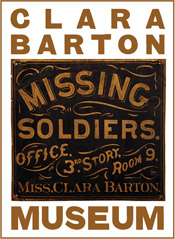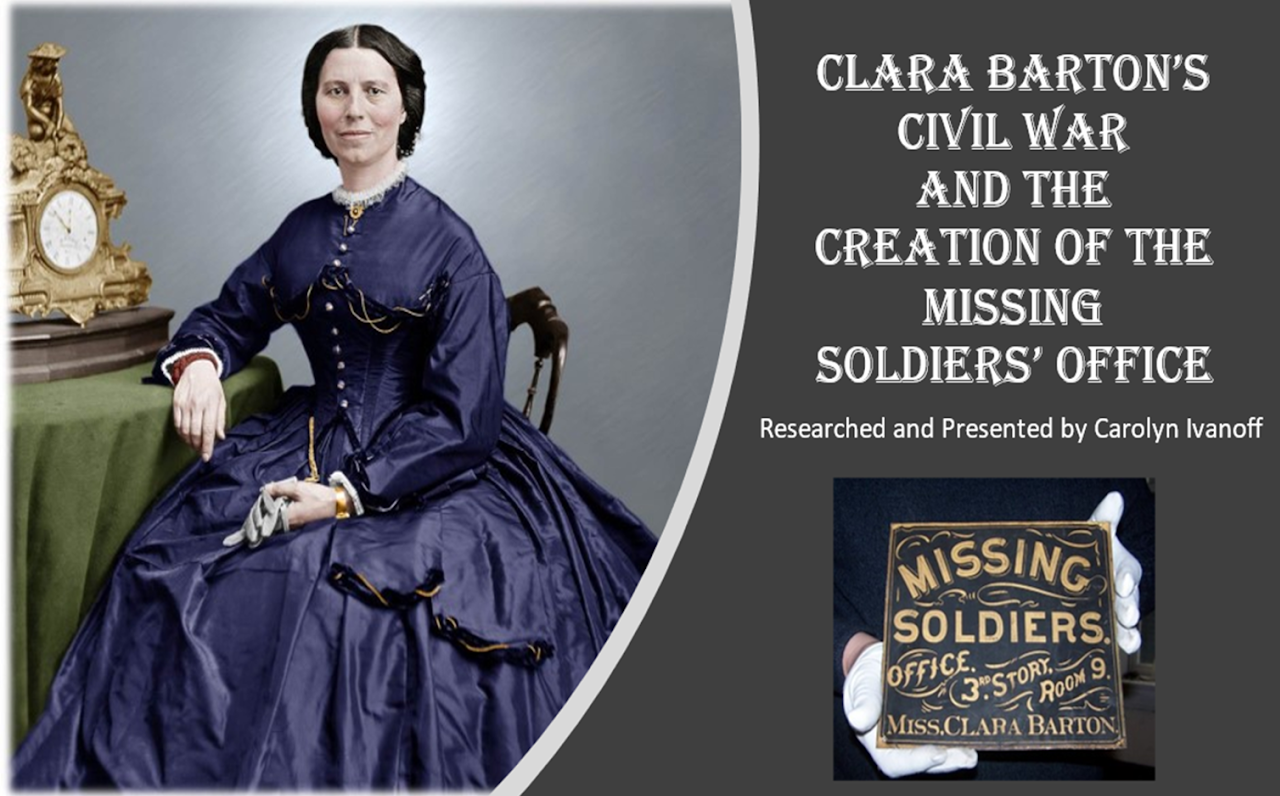
Clara Barton’s Civil War and the Creation of the Missing Soldiers Office
April 29, 2023 @ 2:00 pm - 3:00 pm
Event Navigation
Carolyn Ivanhoff presents a first-person look at Barton and her work
Join us at the Clara Barton Missing Soldiers Office Museum on April 29 at 2:00 PM as educator, author, and independent historian Carolyn Ivanhoff presents her first-person interpretation of Clara Barton, telling of her relief work during the Civil War and her founding of the Missing Soldiers Office.
The presentation is included with admission to the Clara Barton Missing Soldiers Office Museum and FREE for NMCWM members.
The Clara Barton Missing Soldiers Office Museum is located at 437 7th St. NW, Washington D.C.
Carolyn Ivanoff is a retired high school administrator and educator. She writes and speaks frequently on American history at local, state, and national venues. In 2003 Carolyn was named Civil War Trust’s Teacher of the Year. In 2010, 2011 and 2013 her education programs received Awards of Merit from the Connecticut League of History Organizations. In 2016 Carolyn was honored by the Connecticut Council of Social Studies with the Bruce Fraser Friend of the Social Studies Award. In 2018-19 Carolyn served as project coordinator for the 17th Connecticut Flagpole preservation and re-dedication ceremony on Barlow’s Knoll at Gettysburg National Military Park. This project was honored with a 2019 Award of Merit from the Connecticut League of History Organizations for preservation.
Details
- Date:
- April 29, 2023
- Time:
- 2:00 pm - 3:00 pm
- Event Category:
- Clara Barton's Life and Work
- Event Tags:
- Clara Barton, Clara Barton Missing Soldiers Office


